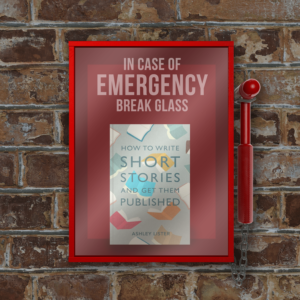By Ashley Lister
One of the key ways to assure author success is to undertake appropriate author branding. Obviously, success will mean something different for each of us: one person might consider success to be reaching the top of a bestseller list, whilst another person might consider it a success to have emotionally connected with a single reader. (I appreciate this is bullshit, and that we all want the bestseller list, but I have to pay lip service to the idea that we write for reasons other than money, so let’s pretend it’s to make an emotional connection).
Author branding is a term that’s often bandied around but it’s hard to identify its purpose because the branding can be seen to be fairly pointless. Having a website that depends on a particular colour scheme; using a particular font for text; working with a specific style for image: can all contain powerful semiotic suggestions. But is this going to make any impression on readers?
The short answer is YES. If an author goes to the trouble of presenting themselves with the identity of a professional brand, readers begin to respect the authority of that author. Readers come to associate certain features with the pleasure they’ve previously had from that author.
In the first instance, a brand can work as shorthand to capture consumer interest. Consider the images we associate with names such Starbucks, Mercedes-Benz or Amazon. With each of these three examples, we see an image and immediately understand the nature of the company responsible. We associate Starbucks with professional quality coffee. We associate Mercedes-Benz with high quality automotive engineering. And we associate Amazon with an inexhaustible range of services and goods (including books) that are available through very swift delivery.
It goes without saying that each of these three companies has invested a lot of time and money in their branding. But that doesn’t mean it has to be a costly process for those of us with time, imagination and determination. (I appreciate that sounds like shorthand for being cheap, but that’s only because I am trying to be cheap here).
Over the next few months I hope to go through some of the key points of author branding but I want to start with the most important question: who is your ideal author?
My initial answer to this question was a snort of disdain and the observation that my books were available for everyone. Why would I limit myself to an ideal reader when I really want every reader in the world to pick up one of my books?
The reality is, if you have a better idea of your ideal reader, you can better target such ideal readers and make successful sales. To illustrate this point, here at ERWA, authors are writing for an audience who enjoy explicit sexual content. This means your readership are going to be adults with an interest in descriptions of the erotic.
You can narrow the audience further by deciding if you’re writing for a predominantly male or female audience. The general guideline is, if your writing focuses on the emotional connection or a sexual liaison, you’re more likely to be writing for women. If your writing focuses on the physical description of that sexual liaison, you’re more likely to be writing for men. This is an egregious oversimplification and it’s not intended to describe women as more emotional and men as more physical: it’s simply a way to identify your typical reader so you can better market your work to an appropriate audience.
To narrow the audience further, look at the age range of your central characters and realise that readers like to read about characters of a similar age to themselves. This is not a rule that’s set in stone. I read the Harry Potter stories when I was in my forties (and that’s a book about a teenager) and, when I was in my twenties, I read Anne Rice’s Interview with the Vampire series (and those vampires are hundreds of years old). But, generally, we like to read stories that describe characters with whom we can identify and age is a significant factor.
Personal attributes are also worth considering when we’re looking at audience. If you’re writing about characters of a specific sexual orientation, or those with a specific fetish, those people are likely to be part of your audience. Who likes to read about spanking? People in relationships where spanking occurs.
There are other ways to identify an ideal reader but it does help to know who you’re writing for before you begin branding. Next month I’m hoping to write about developing a brand voice.



